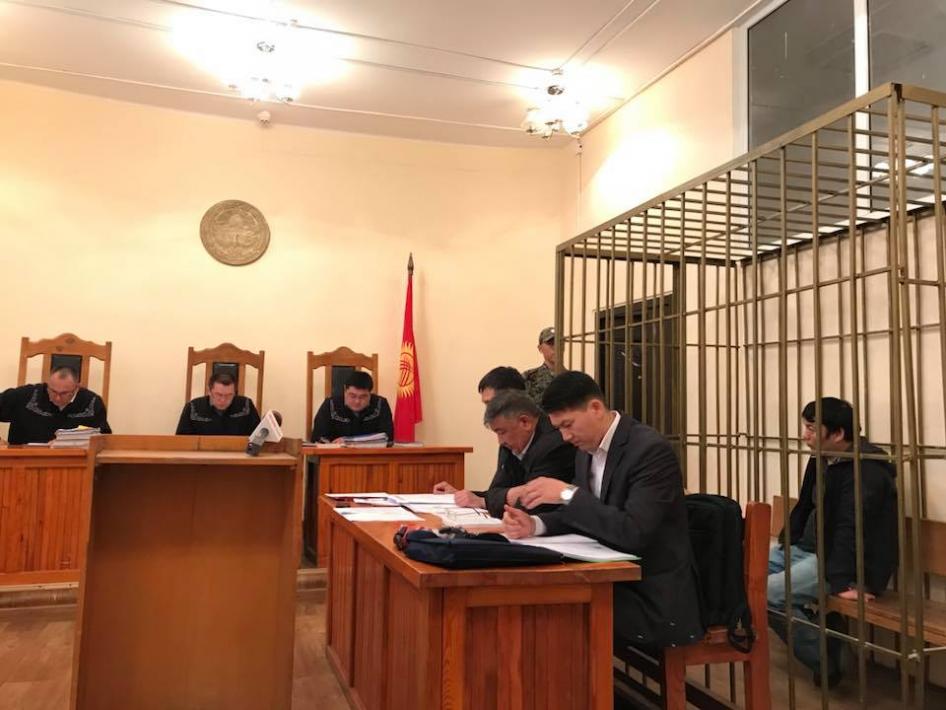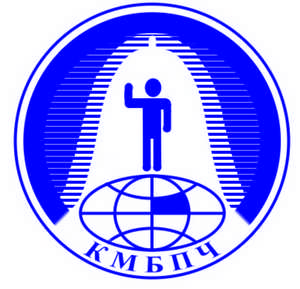A Kyrgyzstan court on June 25, 2018, is to resume consideration of a Kazakh activist’s appeal against his extradition to Kazakhstan.
Kyrgyzstan’s prosecutor general’s office on May 21 granted Kazakhstan’s extradition request for Murat Tungishbaev, the activist and critic of the Kazakh government. Tungishbaev would face a serious risk of torture and ill-treatment and of politically motivated prosecution in Kazakhstan.
“Kazakhstan has a long record of trying to silence people who have critical, dissenting views,” said Mihra Rittmann, Europe and Central Asia researcher at Human Rights Watch. “The Kyrgyz authorities should protect Murat Tungishbaev from being extradited or forced back to Kazakhstan, where he would face politically motivated charges, as well as risk of torture.”
Tungishbaev, 40, co-founded the human rights group Liberty in 2011. The group has worked on freedom of assembly, anti-discrimination, and other human rights issues. Tungishbaev fled Kazakhstan in 2012, after security services summoned him for reporting on the oil workers’ strike and an outbreak of violence in the town of Zhanaozen in 2011. For two years after he fled, Tungishbaev worked for the opposition online television channel 16/12.
Kyrgyzstan’s Committee on National Security (GKNB) arrested him on May 10, in Bishkek, Kyrgyzstan, at the behest of the Kazakh Prosecutor General’s office. The Kazakh prosecutor has accused Tungishbaev of “financing the activities of a criminal group, as well as storage, distribution of property, development of financing channel” and “organizing or participating in an organization after a court decision to ban its activities [on grounds of] extremism….’”
Kazakh authorities have accused Tungishbaev of financing and participating in the activities of the Democratic Choice of Kazakhstan (DVK), an unregistered opposition movement that a Kazakh court in March found “extremist” and banned.
Fearing a forced return, Tungishbaev filed an asylum application with Kyrgyz migration authorities on May 15. But officials at the temporary detention facility where Tungishbaev is being held have denied requests by the State Migration Service to meet and interview Tungishbaev, a prerequisite to processing his asylum claim.
On May 31, Tungishbaev and his lawyer, Nurbek Toktogunov, contested the extradition order.
Human Rights Watch sent a letter to Kyrgyzstan’s prosecutor general on June 7 urging him to withdraw the extradition order, given the serious risk of torture and ill-treatment and of politically motivated persecution if Tungishbaev is extradited or otherwise forcibly returned to Kazakhstan.
Toktogunov argued in court on June 19 that Kyrgyzstan has an obligation to protect Tungishbaev from the risk of torture and cannot under international law extradite Tungishbaev to Kazakhstan.
Ill-treatment and torture in detention is common in Kazakhstan. In its Concluding Observations on Kazakhstan from December 2014, the United Nations Committee Against Torture and Other Cruel, Inhuman or Degrading Treatment or Punishment noted that it is “particularly concerned about persistent allegations of torture and ill-treatment committed by law enforcement officials, including the threat of sexual abuse and rape, in temporary detention isolation facilities (IVSs) and remand centres (SIZOs) under the jurisdiction of the Ministry of Internal Affairs and the National Security Committee for the purpose of extracting ‘voluntary confessions’ or information to be used as evidence in criminal proceedings.”
On May 28, Kazakhstan’s Coalition Against Torture, a group of 47 anti-torture human rights organizations and independent experts, issued a statement opposing Tungishbaev’s extradition emphasizing that “degrading, inhuman, cruel treatment, as well as torture are widespread in the Republic of Kazakhstan” and that “annually, the Coalition registers more than 200 complaints of torture or other types of rights-violating treatment.”
In Kazakh law, the definition of “extremism” is overly broad and is used to silence free speech, Human Rights Watch said. The Kazakh Criminal Code includes a range of non-violent behavior in its definition of “crimes of extremism,” including the vague and overbroad offense of “inciting social, national, tribal, racial, class, or religious discord.”
Since March, authorities in Kazakhstan have increased harassment of perceived supporters of Democratic Supporters of Kazakhstan. On May 10, the authorities rounded up dozens of people across Kazakhstan who appear to have rallied in response to call by the group. Dozens were fined or placed under administrative arrest for participating in the peaceful, but unsanctioned, protest.
Kyrgyzstan is a party to the Convention against Torture and Other Cruel, Inhuman or Degrading Treatment or Punishment, which it ratified in 1998. Kyrgyzstan is also bound by the International Covenant on Civil and Political Rights. Under both conventions, Kyrgyzstan is strictly prohibited from expelling or extraditing a person to a country where they face a risk of torture.
That would prohibit Kyrgyzstan from extraditing or forcibly returning Tungishbaev to Kazakhstan under any circumstances and regardless of the charges against him.
Kyrgyzstan is also a signatory to the 1951 Convention relating to the Status of Refugees and is under an obligation not “to expel or return (‘refouler’) a refugee in any manner whatsoever to the frontiers of territories where his life or freedom would be threatened on account of his race, religion, nationality, membership of a particular social group or political opinion.”
The GKNB should facilitate the State Migration Service’s urgent access to Tungishbaev to begin processing his asylum claim, Human Rights Watch said. And until his asylum claim is reviewed in full, Kyrgyzstan should not extradite or expel Tungishbaev under any circumstances.
“It’s highly worrying that the migration authorities have not been given access to Tungishbaev in detention,” Rittmann said. “It is Tungishbaev’s right to claim asylum given his fears of persecution, and Kyrgyzstan’s obligation to register and give full consideration to his claim.”
Источник https://www.hrw.org/




Для отправки комментария необходимо войти на сайт.